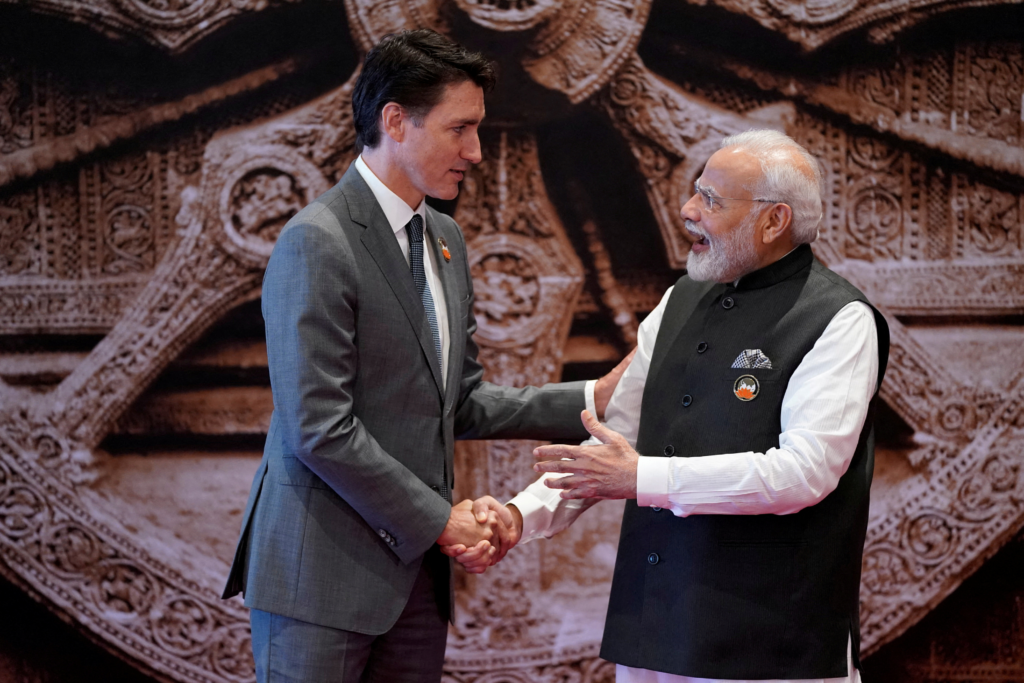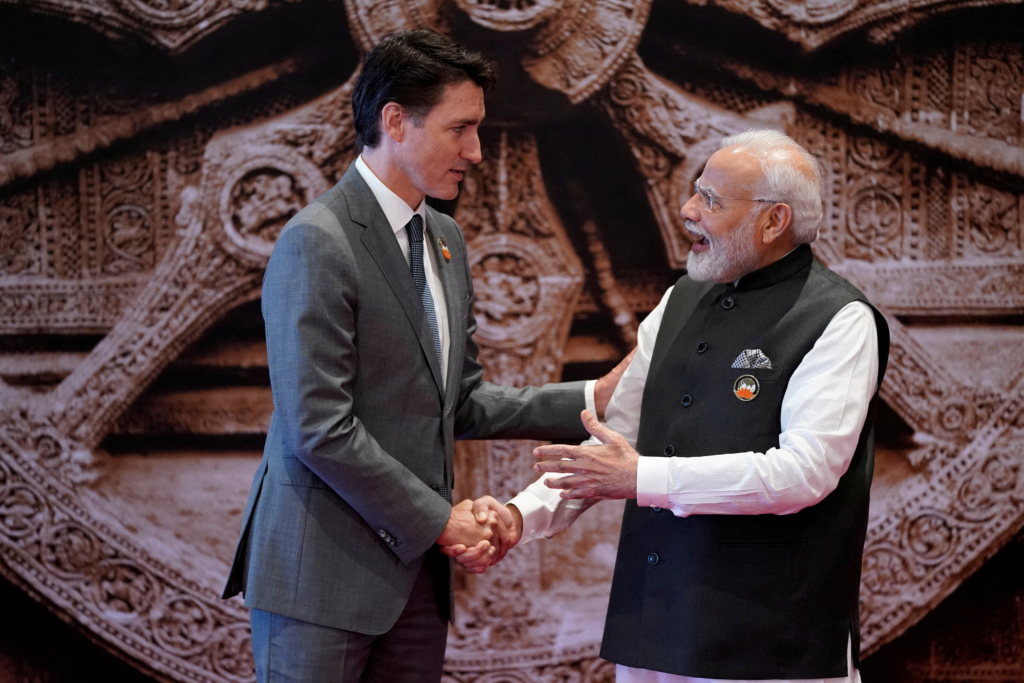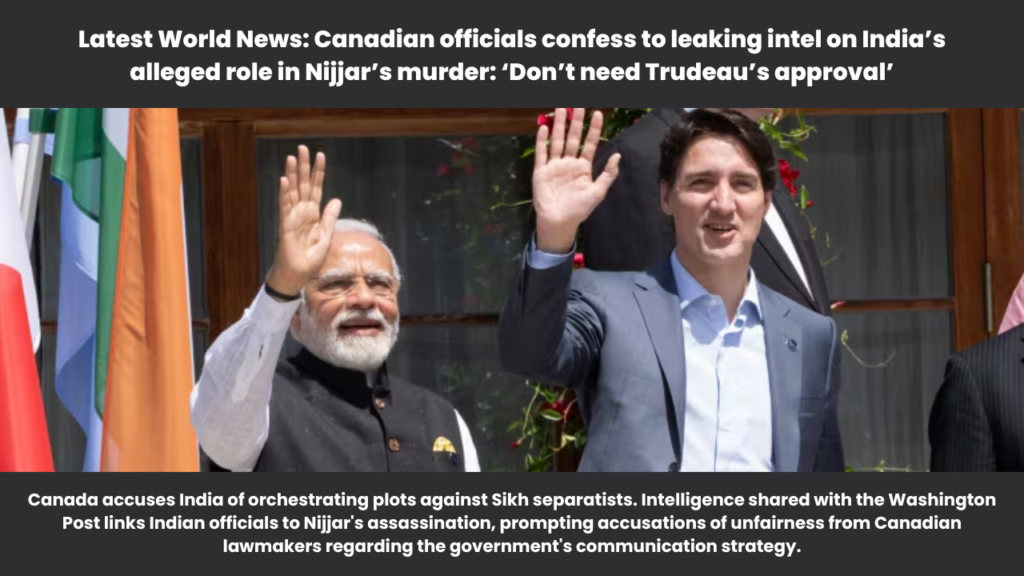India-Canada Row: Two senior officials from Prime Minister Justin Trudeau’s government have acknowledged providing intelligence to the Washington Post regarding allegations of the Indian government’s involvement in the murder of Khalistani separatist Hardeep Singh Nijjar.

The admission comes amid Canadian police publicly linking Indian agents to “homicides and violent acts” in Canada.
What Canada Informed Washington Post?
Nathalie Drouin, Justin Trudeau‘s national security and intelligence adviser, testified before a parliamentary panel that a high-ranking official within Prime Minister Narendra Modi’s administration was allegedly orchestrating plots against Sikh separatists in Canada.

Drouin insisted that she did not need Trudeau‘s authorisation to disclose the information, framing the leak as part of a broader communications strategy aimed at presenting Canada’s stance in the ongoing diplomatic dispute.
“We provided non-classified information on the actions we had taken to cooperate with India and explained how the evidence showed links to the government of India conducting illegal activities against Canadians, including threats to their lives,” she stated.
Canada-India: Diplomatic Fallout and Retaliation
Tensions between Canada and India sunk to a new low after New Delhi expelled six Canadian diplomats on October 14 in response to Ottawa naming India’s High Commissioner as a “person of interest” in the Nijjar case. This followed a public statement by top RCMP officials making serious allegations against India.

Canada Alleges Assassination Plots against Khalistanis by India
In a report published on October 13, The Washington Post detailed a secret meeting between India’s National Security Adviser Ajit Doval and his Canadian counterpart. During this meeting, Canadian officials allegedly presented evidence that India had used criminal networks, specifically the Bishnoi gang, to orchestrate Nijjar’s assassination and conduct attacks on Sikh separatists in Canada.
Drouin disclosed that the meeting took place on September 12 and was attended by high-ranking officials from both countries. She claimed that Doval “refused to acknowledge any links” to the allegations presented.
Scrutiny from Canadian Lawmakers

The parliamentary panel expressed concern over why Trudeau and his cabinet chose to leak information to a newspaper rather than inform the Canadian public.
Conservative public safety critic Raquel Dancho accused the officials of being “quite unfair to the Canadian public”, highlighting that crucial details were shared with the Washington Post before being disclosed to Canadians.
RCMP Commissioner Mike Duheme supported Drouin’s claims, stating that the leaked information was non-classified and withheld from public disclosure to protect ongoing investigations.

India’s Repeated Denials
This revelation intensifies the diplomatic rift, with the Indian government consistently accusing Canada of making unfounded allegations. New Delhi has previously categorised Hardeep Singh Nijjar as a terrorist, linking him to various violent incidents, including a theatre bombing in Punjab and the murder of Sikh politician Rulda Singh in 2009.


